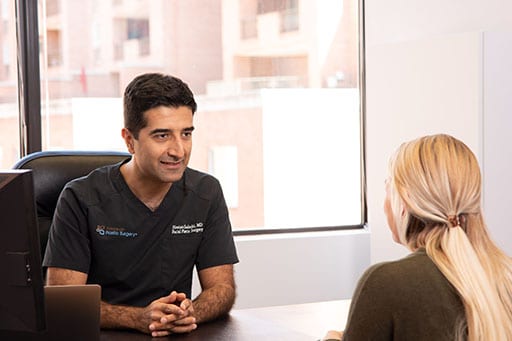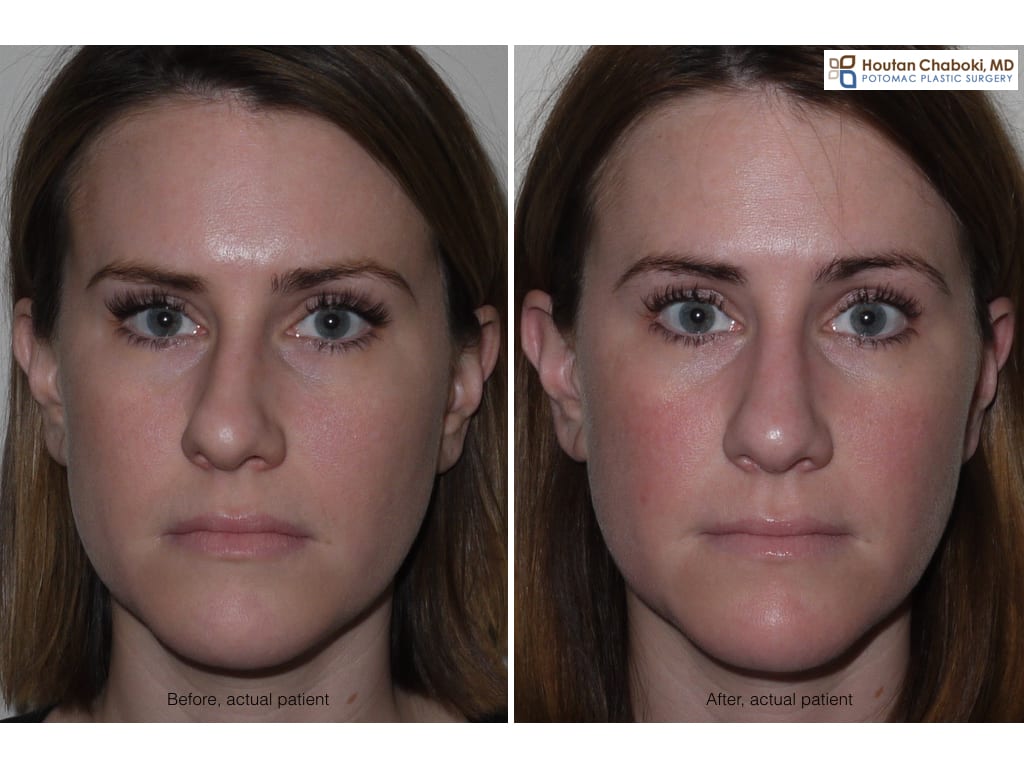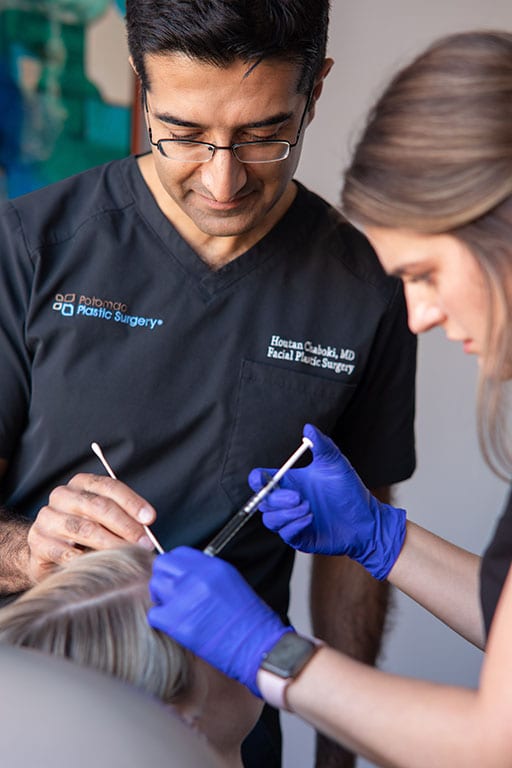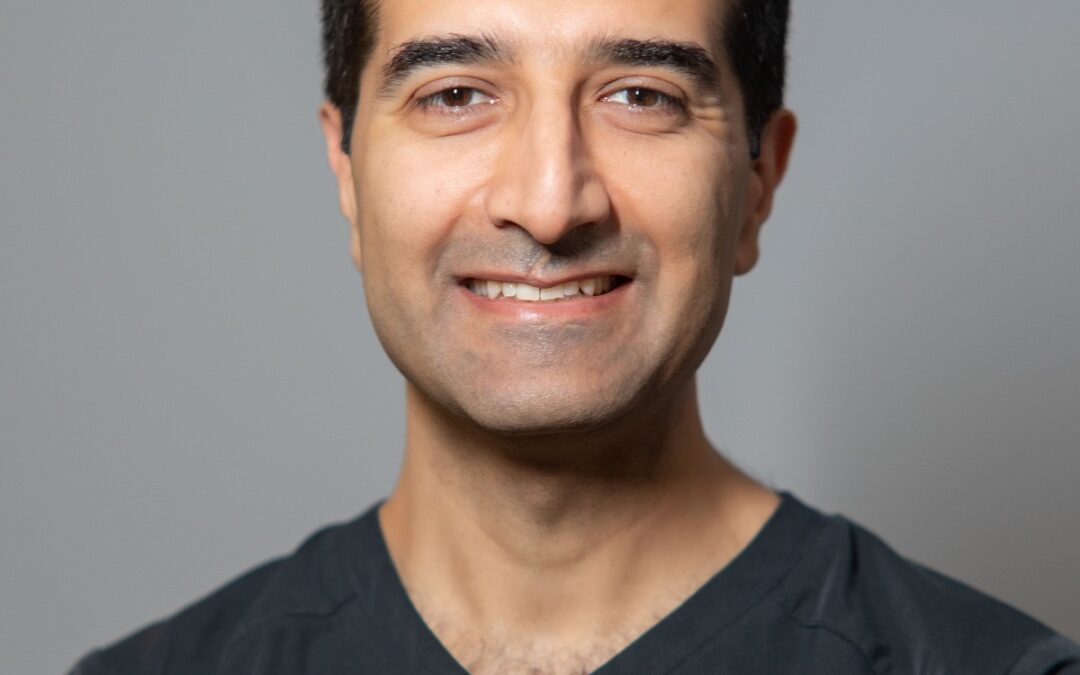When someone needs a facial plastic surgeon they can trust, those in the Washington D.C. area know the place to go is Potomac Plastic Surgery. Dr. Houtan Chaboki is a double board-certified facial plastic surgeon who specializes in preservation rhinoplasty, rejuvenation of the aging face, and more. He works closely with each of his patients to not only ensure they are getting the results they want, but the results that will be best for them in the long run with minimally invasive procedures when possible. In this interview, Health & Beauty Cosmos discussed his background, what makes his clinic unique, and how the global pandemic affected his practice.
This interview was conducted via email.

Health & Beauty Cosmos: Tell me a little about yourself before opening your practice.
Dr. Houtan Chaboki: I grew up in the Chicago area and stayed in the area through medical school at the University of Illinois at Chicago. I then moved to New York City to train in facial plastic surgery at Mount Sinai Hospital and subsequently moved to Washington D.C. to practice facial plastic surgery. I was a full-time member of the faculty at George Washington University Hospital for several years before starting a private practice that focuses on cosmetic surgery.
HBC: What made you decide that you wanted to work in the field of plastic surgery?
Dr. C: The diversity and breadth of issues that are managed by a facial plastic surgeon was the initial draw. However, ultimately my mentors and professors in plastic surgery and facial plastic surgery encouraged me to pursue a career in the field.

HBC: When did you know you wanted to open your own practice instead of work under another doctor?
Dr. C: Many surgical residents join an established practice immediately following fellowship. The idea of private practice developed gradually over time as my patients evolved more into elective rather than reconstructive surgery.
HBC: What procedures do you specialize in? What can make some of these procedures a challenge?
Dr. C: As a facial plastic surgeon, I inherently focus on the face, nose, eyes, and neck. Preservation and “scarless” rhinoplasty, face and neck lift surgery, and eyelid surgery are the most common surgical procedures I perform.
Any procedure on the face, nose, or eyes is more challenging due to many factors, including the nuances and uniqueness of every person. One aspect is an individual’s specific structural anatomy, while another is the degree of change one wants. I have a conservative approach to help achieve natural results.

HBC: How has the industry evolved (technology, etc.) since you started?
Dr. C: Lasers were the primary technological devices in plastic surgery and med spas during training. Now the aesthetic industry offers a variety of devices, such as radiofrequency, ultrasound, plasma, and cold applications to improve one’s appearance. Lasers are no longer the only modality available to plastic surgeons.
In addition, facial plastic surgeons now have enhanced understanding of regenerative cosmetic medicine, which uses your body’s own natural regenerative abilities to rejuvenate itself. Certain cells and tissue, such as stem cells, exosomes, and platelet rich plasma and fibrin (PRP and PRF) contain powerful regenerative properties that can make skin and hair look healthier. We’re now improving one’s appearance with the patient’s own blood and tissue for natural results.
HBC: What makes your practice unique to others within the industry?
Dr. C: My practice, Potomac Plastic Surgery, focuses on conservative aesthetic results with minimal downtime that improve the quality of our patients’ lives. We want our patients to look vibrant, not younger per se.
Patients come for a personal evaluation by me to review appropriate options. We intentionally don’t offer many devices or procedures as they don’t often meet our strict criteria of safety and efficacy.
HBC: How has COVID-19 impacted your practice over the course of the year?
Dr. C: As a physician first, we proactively closed our practice to elective procedures prior to the official shutdown to keep everyone safe. The shutdown lasted about three months before the region was ready and we were allowed to see cosmetic surgery patients safely.
We had implemented several infection control measures before the pandemic. We have now added additional protocols, which can be seen on our blog. Our plastic surgery patients have felt safe knowing we take a comprehensive approach to safety
HBC: What is the most satisfying thing about the work you do?
Dr. C: Hearing from patients and their families that we’ve improved the quality of their lives. Our patients not only look better, but typically report that they feel better. The benefit of our aesthetic services can extend beyond the specific treatment.

HBC: What role does philanthropy play in your life, as well as the life of your practice?
Dr. C: We’ve always participated in pro-bono plastic surgery. For example, as a facial plastic surgeon, I see patients who suffered facial trauma from domestic violence. I offer pro-bone reconstructive procedures as appropriate, which may involve broken nose repair and scar therapy.
HBC: What is the one piece of advice you would give to med students who own a practice of their own?
Dr. C: Medical students should do a self-analysis and determine what is really important to them and how hard are they willing to work to achieve it. Medical students should also be ready to change their practice environment as their career grows and evolves over time.
In addition, education and learning doesn’t stop with medical school. I’m always learning new cosmetic surgery techniques and enhancing existing techniques.

